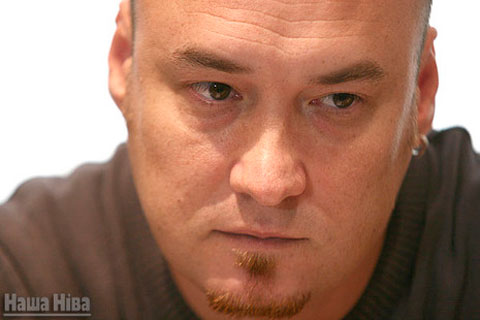Valiantsin Stefanovich: It is worth reminding the Ministry of Justice about the position of the UNHRC regarding the non-registration of "Viasna"
In her speech in Geneva at the UPR procedure for Belarus, the representative of the Ministry of Justice Hanna Shpak stated that some groups are capitalizing on their status of unregistered public associations for political reasons. Deputy Head of Human Rights Center "Viasna" Valiantsin Stefanovich, who was present at that meeting, decided that it was worth reminding the officials of the Ministry of Justice about the history of the organization's non-registration.
Firstly, the organization was de-registered by the Supreme Court of Belarus in 2003.
"Our human rights center was eliminated for a "flagrant violation" committed in 2001, during the election observation. The elimination of the organization took place under the Civil Code and not the Law "On Public Associations", since applying the rules of this law was impossible as we had no warnings from the Ministry of Justice within the year before the liquidation. i.e., there were no violations of the law on the part of “Viasna”,” says Mr. Stefanovich. “We were eliminated for what we had been already warned in 2001. First of all, this means double punishment for one deed, with two-year's break. Secondly, Article 117 of the Civil Code states that the activity of public and religious organizations is regulated by special legislation, I.e. the Law "On Public Associations". Therefore, we believe that the elimination of our organization was absolutely illegal according to the national law, not to mention international norms."
The human rights activist also reminds that the elimination of “Viasna” was assessed from the standpoint of international law by such an authoritative international organization as the United Nations Human Rights Committee in 2007. According to the Committee's decision, the elimination of "Viasna" is a violation of the rights of the applicants (10 people, including the head of the organization Ales Bialiatski) to freedom of association.
"The government of Belarus has been instructed to take steps to restore our violated rights - re-register "Viasna", pay a compensation and so on. To this day, Belarusian authorities haven't implemented this decision of the Human Rights Committee. Moreover, in the period from 2007 to 2009, members of the liquidated Human Rights Center tried three times to register a new organization - thus the authorities had the opportunity to restore their rights, but didn't do it," says Valiantsin Stefanovich.
After the third registration denial in 2009, which was made on absolutely formal grounds, the head of the Human Rights Center "Viasna" Ales Bialiatski and the members of the Council Valiantsin Stefanovich and Uladzimir Labkovich publicly stated that all following appeals to the registering authority was meaningless because the authorities did not want to register the human rights organization. Since then, the HRC "Viasna" has operated without registration.
The situation with the refusal to register "Viasna" also received assessment from the UN Human Rights Committee in its views on the case of Ales Bialiatski. In particular, there it is stated that the refusal to register “Viasna” constitutes a violation of article 22 of the International Covenant on Civil and Political Rights.
"So there are already two decisions regarding the UN Human Rights Committee regarding “Viasna”, and the authorities, who have ratified the Covenant and the Optional Protocol, thereby recognized the competence of the Committee, but don't perform its decisions," reminded Valiantsin Stefanovich.
According to human rights activists, it is a clear example of selective cooperation of Belarus with the UN mechanisms.
This finding was confirmed by the country's permanent representative to the UN, Mikhail Khvastou, who has repeatedly stated that the authorities did not accept and would never accept the mandate of the UN Special Rapporteur on Belarus. As it turned out, the principle, the authorities are also guided by their likes and dislikes in their relations with the thematic special rapporteurs of the United Nations (for instance, invitations to Belarus still cannot be obtained by the Special Rapporteurs on human rights defenders and freedom of association). This was also confirmed at the UPR procedure on May 4 by the representative of the Belarusian MFA Iryna Vialichka, who stated that the Ministry didn't issue invitations to visit Belarus to the thematic thematic rapporteurs who would “not engage in a constructive dialogue with the government”.
"In fact, this is the first time we have witnessed the public recognition of selective cooperation of Belarus with the United Nations. I have not heard of such public statements made by any other country in the world. As human rights activists, we believe it is unacceptable. Belarus, which as a member of the UN Covenants ratified most of the human rights, the Optional Protocols thereto, has committed to implement them, and now the whole world has witnessed that it in fact refuses to fully cooperate with the UN monitoring mechanisms," said Mr. Stefanovich.
Such statements by the Belarusian authorities raise a serious concern for human rights, stressed the representative of "Viasna".


















